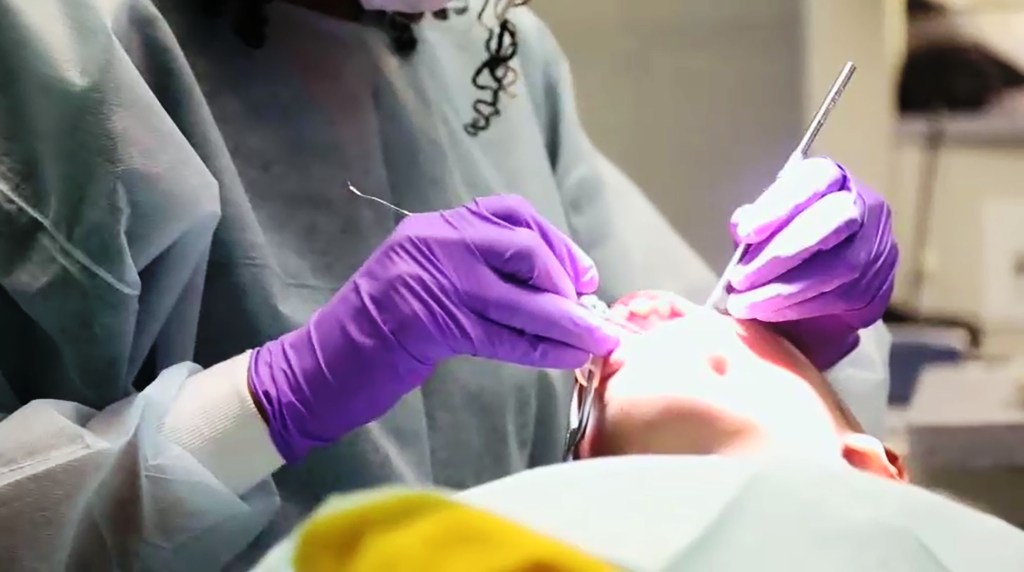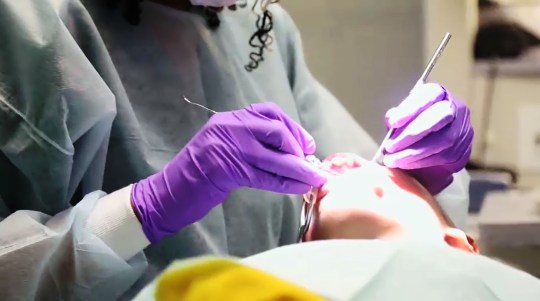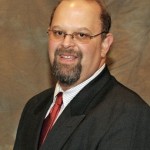Recently, outside a dental clinic in Atlanta, two men in lavender-colored scrubs could be seen escorting a woman in a wheelchair to a car.
To a passer-by, that might have looked like an unusual level of service to be given a dental patient. But this is not a typical dentist’s practice. It’s the Georgia office of the DDD Foundation (Dentistry for the Developmentally Disabled Foundation).
The patient, 49, is developmentally disabled and lives at a personal care home. Earlier that morning, she had been dropped off by staffers from the home for a check-up on how she was healing after oral surgery. Now she was set to begin her trip home.
The DDD Foundation clinic, which opened in 2002, is exclusively for treatment of the developmentally disabled population.
Some of these people would not get much dental care otherwise. While several Georgia dentists specialize in treating the developmentally disabled, many others don’t feel equipped to do so. Most dentists in the state, in fact, do not accept patients who are severely developmentally disabled.
Hard cases to handle
A dental visit can be stressful for anyone, but patients of the DDD Foundation often find it especially difficult. And that, in turn, can cause challenges for clinic staffers.
“Sometimes you open up the car door, and the patient takes off running,” says Sheri Lynch, the director of development at the DDD Foundation, explaining the necessity of a private parking lot for the clinic.
Each day, the clinic receives about 20 patients, both children and adults. Different methods and procedures are employed for each individual patient, requiring extensive time. The full-time staff includes two dentists, a dental hygienist and three dental assistants.
More than 40 percent of the patients seen at the clinic have autism spectrum disorder; others have intellectual delays, cerebral palsy and Down syndrome.
Developmental disabilities can keep people from performing simple tasks, including basic oral health measures like brushing and flossing the teeth. In severe cases, individuals are wholly dependent on caregivers. It’s easy for dental care to be neglected entirely.
Treating such patients is “not the kind of thing most dentists want to do,” notes Lynch. There are practical reasons for that.
Developmentally disabled individuals often are unable to communicate when they are having dental problems. Consequently, behavioral issues can emerge.
“These individuals will act out when really trying to say, ‘My mouth hurts,’ ” says Eric Jacobson, the executive director of the Georgia Council on Developmental Disabilities.
The average dental residency teaches procedures that assume a dentist’s ability to communicate with a patient and to maintain reasonable control of the treatment situation. Most dentists are not prepared for uncontrolled behavior by patients, which may include screaming, scratching or even running away.
The two dentists at the DDD Foundation clinic, Dr. Deidra Rondeno and Dr. Willie Oliver, completed two of the few general practice residencies nationwide that include training for treating developmentally disabled patients — the Illinois Masonic Medical Center and Ohio State University, respectively.
While patients with developmental disabilities can pose problems, there is also a sense of satisfaction in helping such vulnerable people. “You enjoy it. Otherwise you wouldn’t be able to do it,” says Dr. Roy Brooks, the dental director at Georgia Regional Hospital in Atlanta, when he speaks of treating such patients.
At the DDD Foundation, multiple dental staff often work together with a single patient at any given time. Some patients require more than two assistants.
Lynch recalls a time when one patient — who was about 6 feet 3 inches tall and weighed about 300 pounds — required the assistance of almost every member of the clinic staff.
“He thrashed and kicked like he was fighting for his life,” recalls Lynch.
The clinic’s head dentist, Rondeno, is only 5 feet tall. Lynch adds, “This makes the job physically demanding.”
Dental care is essential, not incidental
The oral health of people depends a lot on their hygienic routine. Patients from personal care homes often skip their bi-annual dental appointments to avoid the costs of care, which results in severe dental decay and periodontal disease. That can cause tooth loss and further infection.
In such cases, “these appointments can take hours,” says Lynch.
It’s well known that dental health affects overall health and well-being, but Jacobson says public policy groups have failed to recognize this reality.
Dental service “is always cut first when cutting dollars,” says Jacobson.
Many private health insurance plans do not include dental coverage, and most dentists in Georgia do not accept patients covered by Medicaid, a government program for the poor and disabled.
“The DDD Foundation are angels for serving a population that predominantly relies on Medicaid,” says Dr. David Kurtzman, a Georgia dentist who treats developmentally disabled patients who need hospitalization for dental care.
The foundation treats 4,200 patients with developmental disabilities annually, yet the estimated number of potential clients in need of special services is higher. The clinic is currently under renovation to expand into a neighboring building.
“Dental services cannot be seen as this extra service,” says Jacobson. “It has to be seen as just as important as other medical or social services.”
Editor’s note: The first version of this story contained errors relating to dental procedures. Georgia Health News apologizes for those errors.



